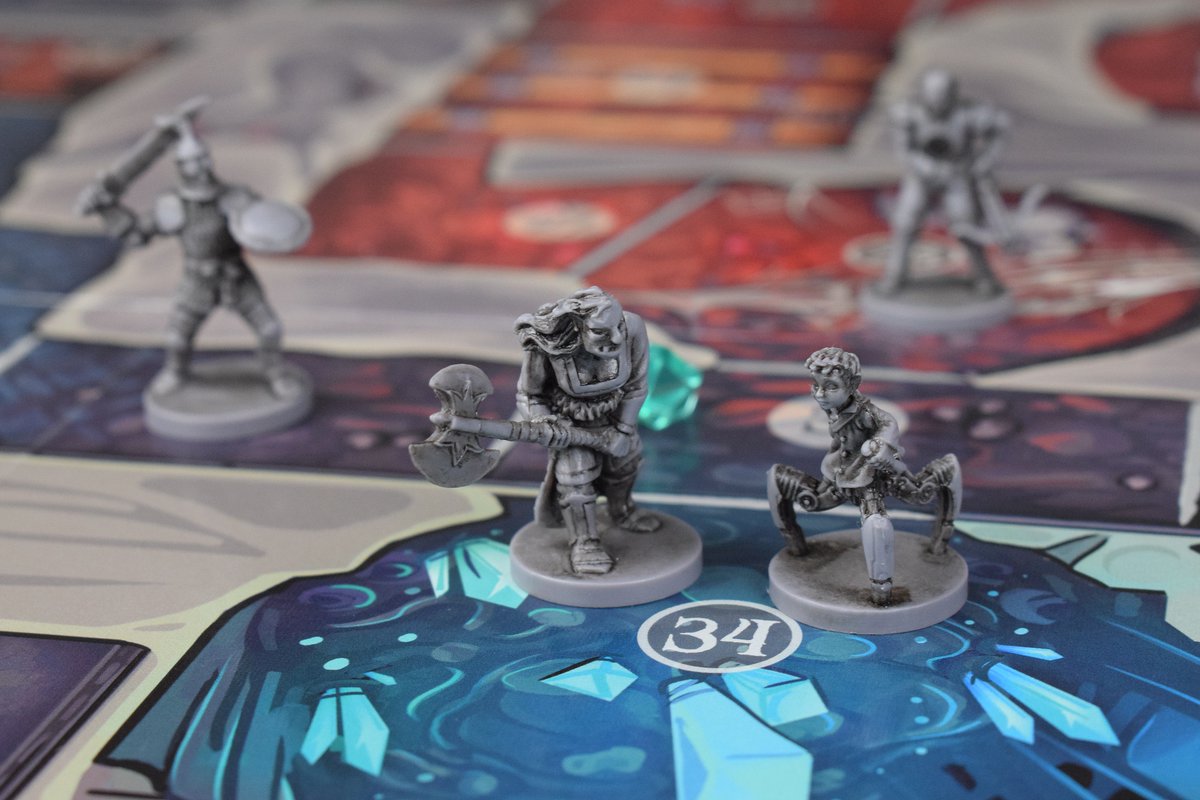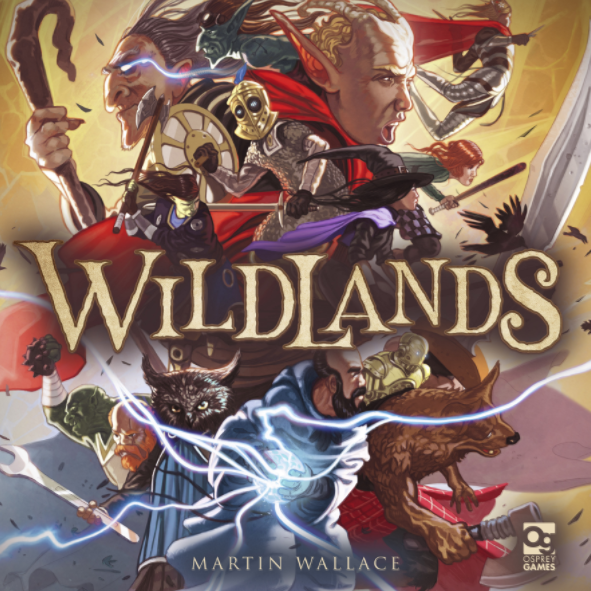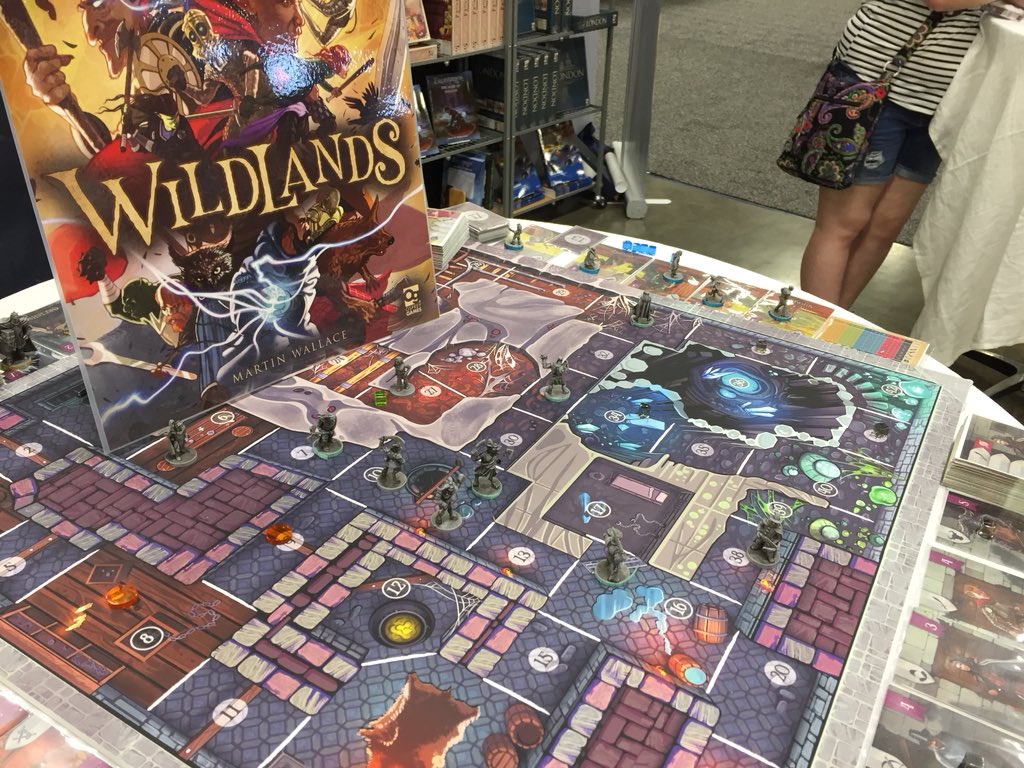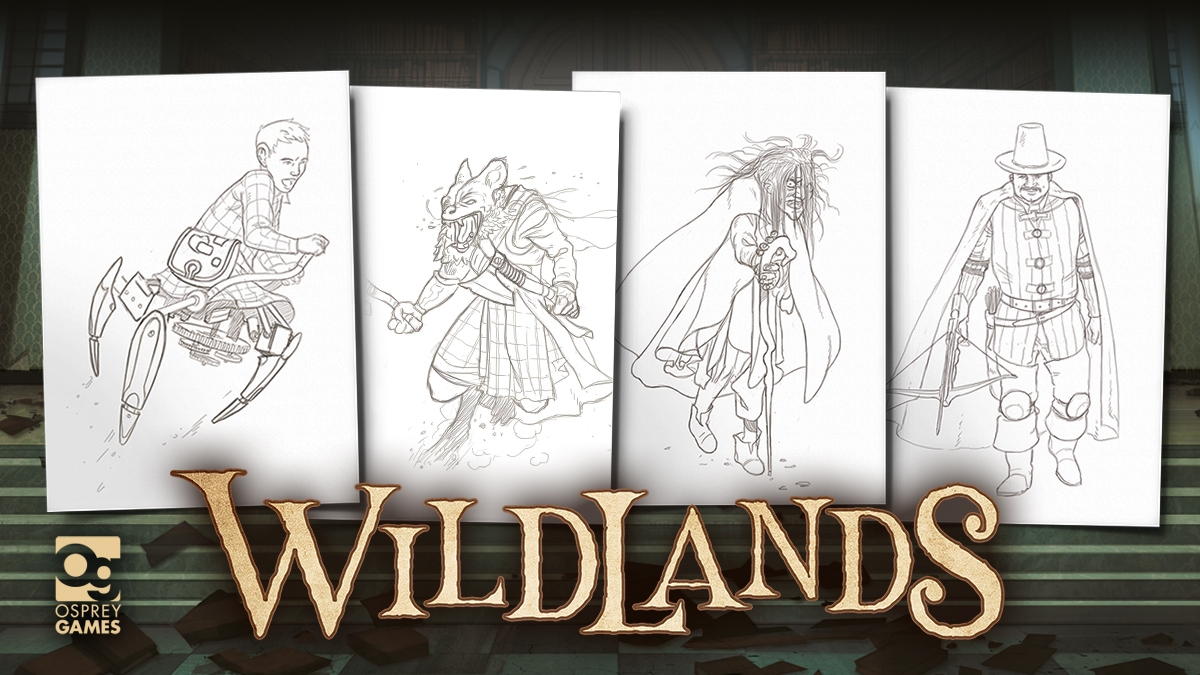Less is More: Martin Wallace on game design trends, new game Wildlands
"Many computer games are bloated due to the lack of need of streamlined mechanics."

Sat with a hand full of cards at a table full of maps and miniatures, Martin Wallace has just drawn a most unlikely comparison. "I read a review of some massively multiplayer arena games," he recalls. "Might have been Overwatch. And I thought, 'yes, this has got the same feel'. A lot of action going on. You’re looking at a map, thinking about where the enemy is, are they laying a trap for me? You’re thinking in real world terms."
The game he's enthusing over is his latest title, Wildlands, coming from Osprey games this winter. He describes it as "a quick playing, easy, multi-player arena combat game". That's a crowded genre, but Wallace has employed his considerable ingenuity and design experience to ensure it stands out. "The game is basically symbol driven," he explains. "But the cards are multi-use. So, there’s an opportunity cost. Because if I use this card to move this character here that means I’m doing one less action within my deck cycle with these two here. Within a very simple system you’re presented with difficult decisions about how you use the resources at hand."
Wallace is one of the most prolific board game designers working today. You might recognise his name from the recent furore over Acram Digital, which had all its titles pulled from Steam due to fake reviews. Among the victims was an adaptation of one of Wallace's best-known games, ironically also called Steam. He's sanguine over the loss. "I sold the rights a number of years ago," he tells me. "So, I don't receive any royalties."
As he demonstrates Wildlands, it's clear that his breadth of experience has influenced the game. "It's a free-flowing action system," he explained. "However, after each individual action, you have to pause because the other player has the opportunity to play a card with an interrupt on it." This is clearly a nod back to Wallace's roots as a hex and counter wargamer, where the concept of interrupting for opportunity fire is common. He laughs at the comparison. "Yes! This is Squad Leader," he admits.

Many of the mechanics involve matching symbols on the card to those on a character to have them take actions like moving, attacking or blocking. "As soon as you use dice in a combat system, you've kind of hobbled yourself," Wallace told me. "It breaks immersion and slows things down. And it tends to be done in the same kind of way, rolling dice to hit and block. There's nothing clever or original in that. I’ve been trying to do games with diceless combat whether it be deterministic or, as in this one, very simple: you block or you don’t."
He wasn't tempted, though, to leap on the modern trend for deck building games like Magic: the Gathering. "For some, that's an occupation," he said. "But it's adding a whole front end to the game which slows everything down. I want something you can get off the shelf, flop the board out, choose a faction and bang you’re ready to go. Plus, they can be easily broken if you get a good combo going. There's a degree of instability."
Of course, deck builder or not, any game with cards and factions is ripe for expansion. Wildlands is no exception, and Wallace has plans for that, adding back some concepts that he stripped out during development. But he's adamant that anything new will be in a mix and match format that doesn't break the simplicity of the original. "There are some games you refresh it by changing the rules so you have to rebuy everything," he opined. "But the game is still doing the same thing, you're still building armies and smashing them together. With this you don’t have to change the core rules, but there’s all sorts of rules you can add to it."
The biggest gaming news, reviews and hardware deals
Keep up to date with the most important stories and the best deals, as picked by the PC Gamer team.

Wallace is scathing about a lot of popular fashions in tabletop design. He memorably dismisses the entire genre of worker placement as "games about queueing." And he's also not a fan of a lot of Kickstarter campaigns, decrying the lack of pre-release development they undergo as "shocking". Wildlands won't be going down that route but will, instead, be available at Essen, the famous German game fair in October.
He partly blames Kickstarter for the deluge of releases that overwhelm gamers and designers and alike. "With so many games coming out, it's here today gone tomorrow. It is a real problem," he tells me. "Just because you do a good game, doesn’t mean it sells well. There are lots of good games and for one reason or another the public moves on. Because Wildlands is expandable I’m hoping that if it takes off, expansions keep refreshing it, keep it in the public view."
Indeed, he's enthusiastic about the prospect of spending more design time on Wildlands. "Some of my games, after I’ve finished, I feel like I’d rather not play them again," he said. "But this I really enjoy developing because it’s so much fun setting up different factions, and trying out things." This makes me wonder if designers often go back and play their own games after the hours and hours of playtesting they've spent. It turns out that playtesting is a barrier for Wallace, but not in the sense of boredom. "I'd like to play more but I always feel I should be playtesting something else. Playtesting time is so valuable, that’s your main bottleneck. It’s a full time occupation and I have to make a living!"

Of course, this prompts discussion of what he's working on now. The answer points back to video gaming. "I am aware of the potential impact of gaining a digital audience," he explained. "I have in mind a series of light, easy strategy games that play in 5-10 minutes and which combine the best elements of a computer game with those of a board game. I’m not a fan of board game ports as I think they miss the point in what a computer brings to the table. Similarly, many computer games are bloated due to the lack of need of streamlined mechanics."
Does that mean he has similar feelings about over-worked and over-produced tabletop games? "The art of game design is less is more," he replied. "A core of simple rules that lead to emergent complexity. And I've tried to keep the core of Wildlands as simple as possible." After an hour with the game it looks impressive, but it's hard to judge how much complexity might emerge from it. What has emerged, in spades, is Wallace's passion for, and knowledge of, board gaming in all its varied guises.

